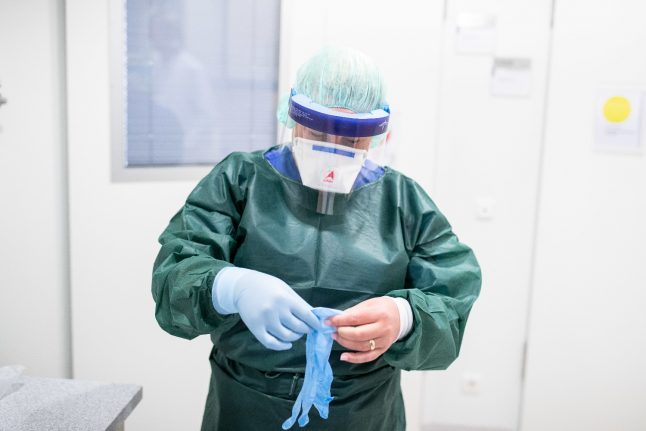The coronavirus strain, now known worldwide after its genesis and spread from Wuhan, China, has continued to spread across the globe.
Countries such as Iran and Italy have seen a growing number of cases in a short amount of time, and are now reporting more new cases than China. Italy has already documented over 600 cases and instituted travel restrictions.
Cases in Germany are on the rise as well. The district of Heinsberg in North Rhine-Westphalia – Germany's most populous state – quarantined 1,000 individuals Friday after an infected couple participated in carnival celebrations in mid-February. Schools and kindergartens were also shut in the district until Monday.
READ ALSO: Germany quarantines 1,000 as coronavirus cases push past 50
In Hamburg, parents and children who were in contact with an infected employee at a university clinic have also been ordered to stay home for 14 days.
Symptoms
The virus comes with mild flu-like symptoms such as coughing, sneezing and sore throat, with some also reporting diarrhea. The illness usually not a threat to individuals with strong immune systems.
The German government calculates the death toll worldwide at around two percent, although this number may be high. Only patients treated in hospitals are accounted for, leaving mild cases undocumented and likely skewing results.
Elderly individuals, pregnant women and immunocompromised people are at a greater risk of serious complications related to the Coronavirus.

Provided to The Local via Statista
So what can Germans do to stay healthy and safe?
The best ways to protect yourself are to practice the same habits you would during regular flu season:
- Wash hands thoroughly and often with soap and water, especially after coughing and sneezing or before eating.
- Avoid touching your eyes, nose or mouth, especially with unwashed hands.
- Cover your nose and mouth when coughing or sneezing.
- Avoid close contact with people who have symptoms of respiratory illness.
- Wear a mask if you suspect you are ill, or if you are assisting someone else who is ill.
- Clean off surfaces with alcohol- or chlorine-based disinfectants.
The Robert Koch Institute, a German federal health and research agency, also advises people to not take antibiotics or antivirals unless prescribed by a doctor.
The Institute maintains that the risks of being infected in Germany are still generally low to moderate.
A few myths: wearing a mask, unless you already feel ill or are working with those who are, is not considered necessary in Germany.
Additionally, consumers should not be worried about being infected through imported goods. The German government considers this scenario highly unlikely at the moment. And finally, pets are at no risk of being infected or infecting you.
Vocabulary
(das) Fieber – fever
(die) Kopfschmerzen – headache
(die) Schmerzen – aches
(der) Husten – cough
(die) Atembeschwerden – breathing difficulties
(eine) Erkältung – a cold
(die) Grippe – the flu
(das) Coronavirus – coronavirus
(der) Rettungsdienst – ambulance service



 Please whitelist us to continue reading.
Please whitelist us to continue reading.
Its already a pandemic. The WHO used to be an excellent organisation unfortunately it hasnt been one for years. There are far better reports to look at.